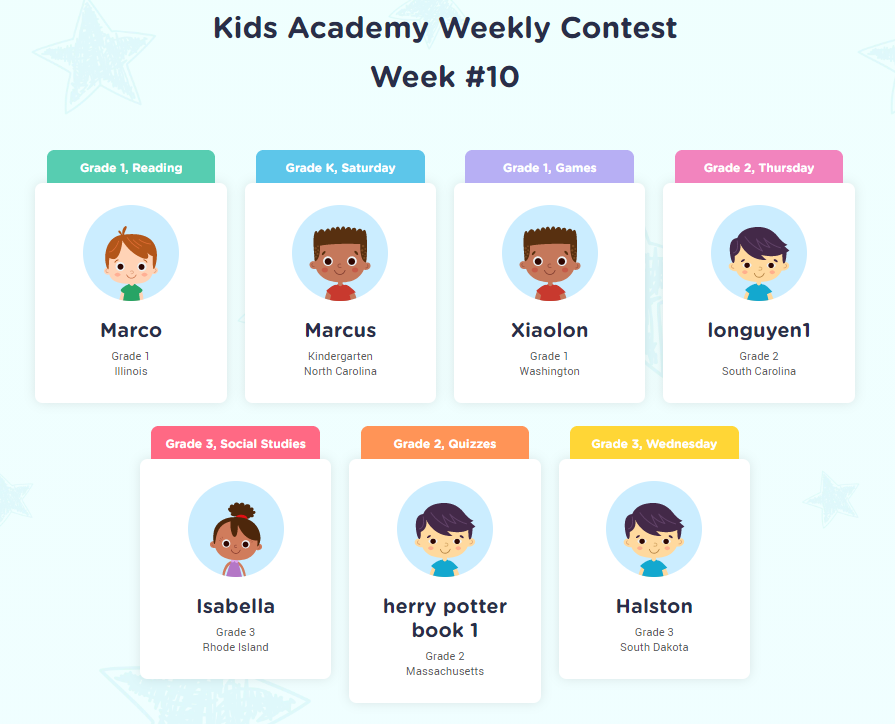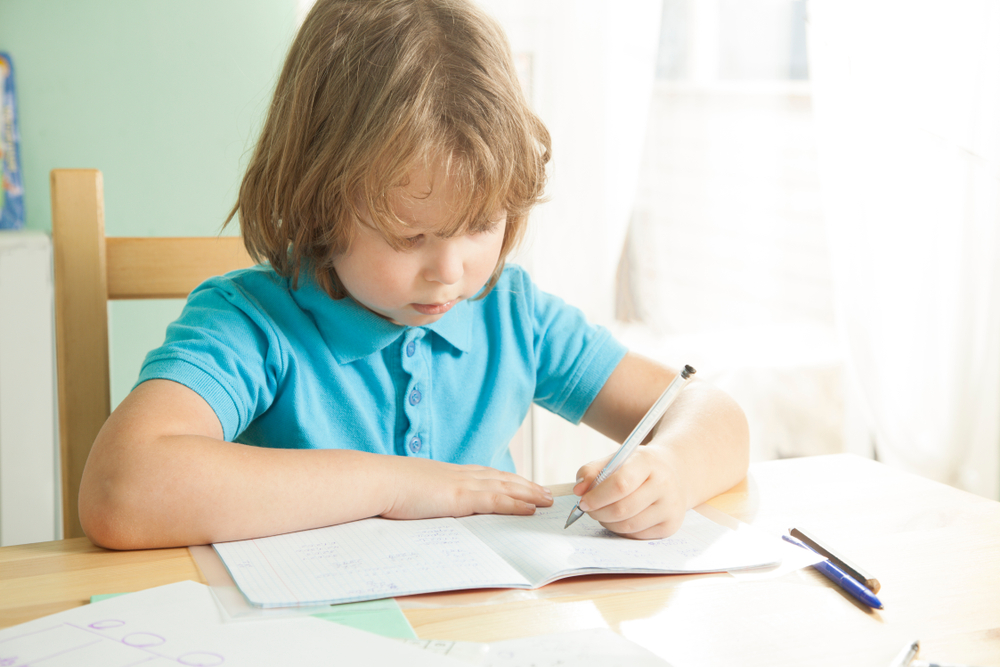Improving spelling skills Worksheets for Ages 3-6
5 filtered results
-
From - To
Boost your child's spelling abilities with our "Improving Spelling Skills Worksheets for Ages 3-6"! Designed by educational experts, these fun and engaging worksheets help young learners master foundational spelling skills. Through a variety of activities like tracing, matching, and fill-in-the-blanks, children will build their vocabulary, phonemic awareness, and letter recognition. Perfect for preschoolers and kindergarteners, these worksheets make learning to spell easy and enjoyable. Available for instant download, our resources align with early childhood education standards to ensure your child gets a great start in literacy. Explore our collection and support your child's spelling success today!
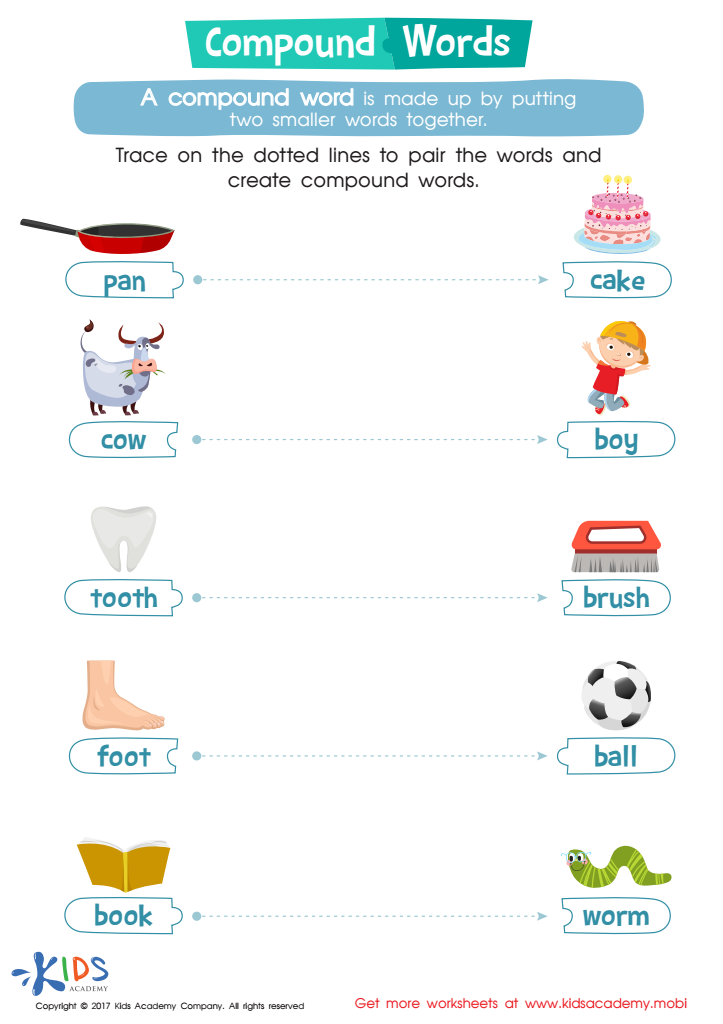

Compound Words Word Structure Worksheet
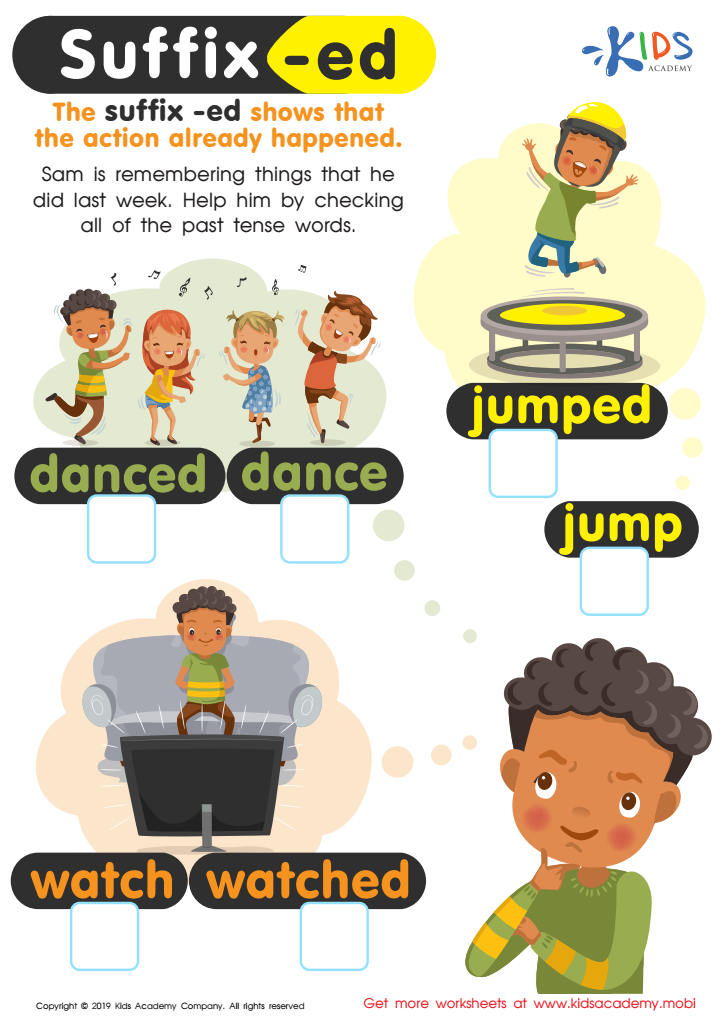

Suffix-ed Worksheet
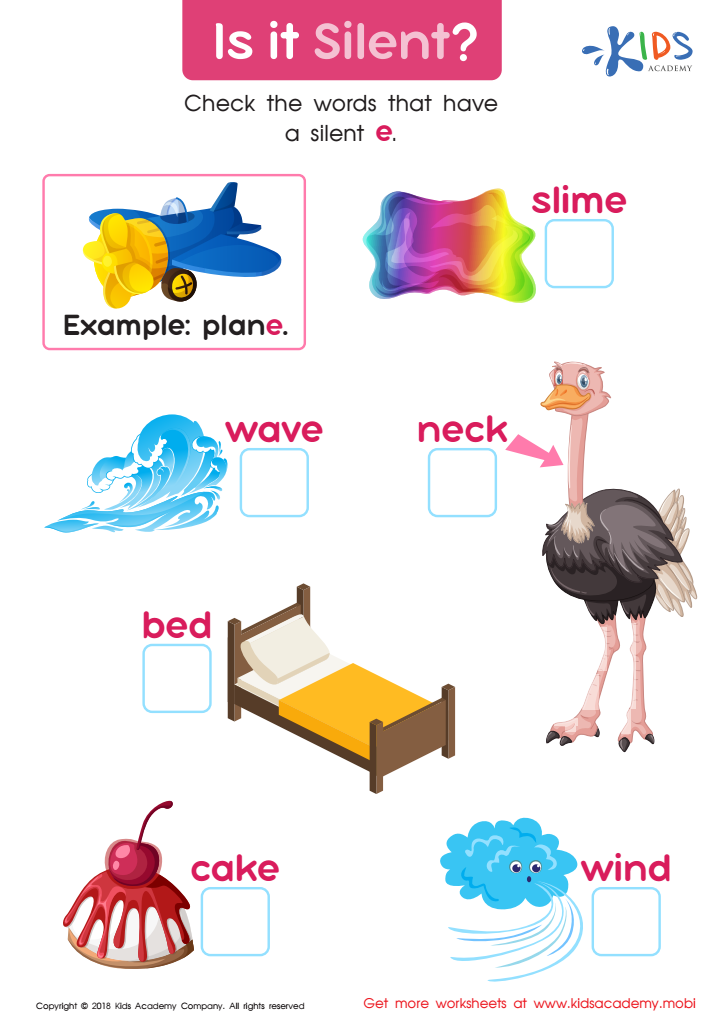

Is It Silent? Worksheet
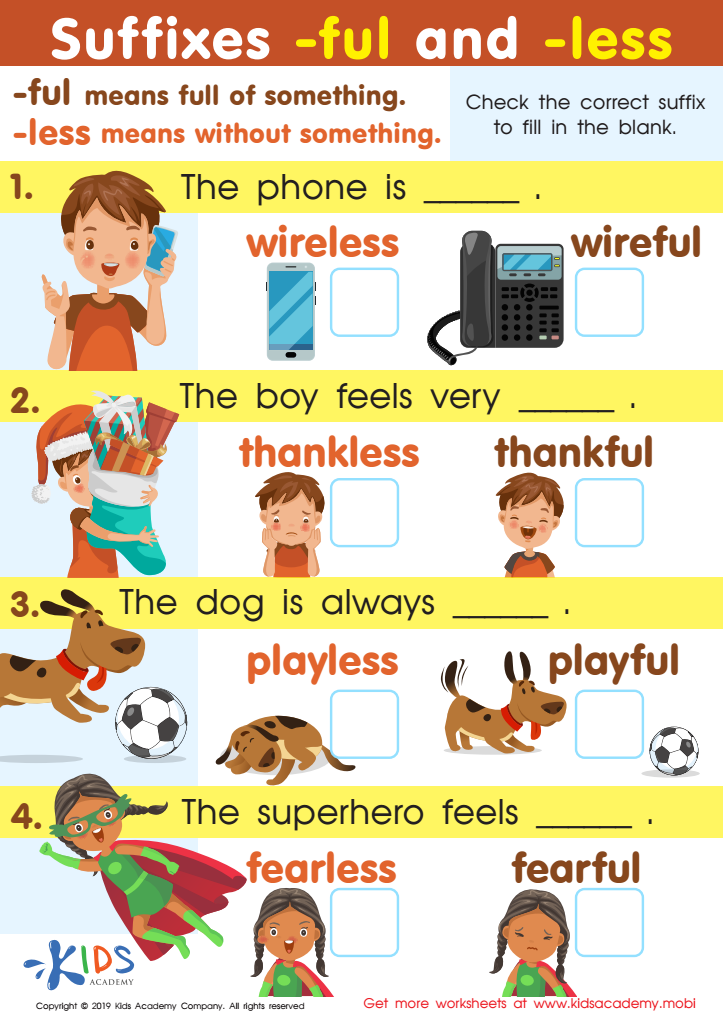

Suffixes –ful and –less Worksheet
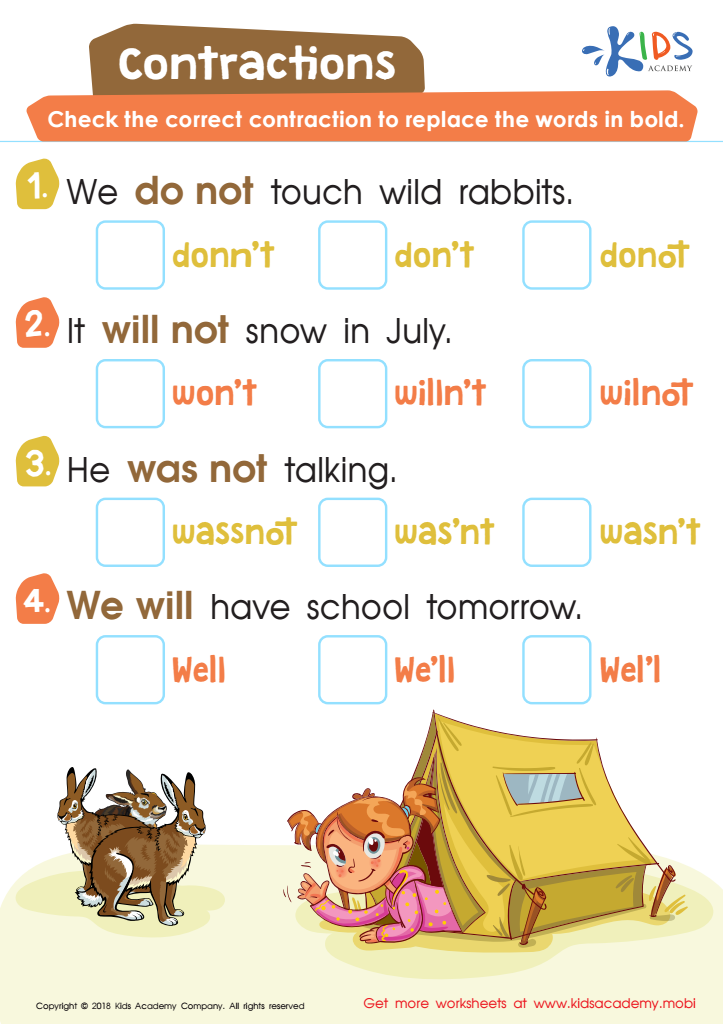

Contractions Worksheet
Improving spelling skills in children aged 3-6 is vital for several reasons. At this early stage, kids are in a critical period of cognitive development, and learning to spell correctly lays the foundation for future literacy skills. When children understand spelling, they often find reading easier, which in turn, enhances their language comprehension and overall communication abilities.
Spelling exercises also help young children recognize patterns in words and develop phonemic awareness, which is the ability to hear, identify, and manipulate phonemes, the smallest units of sound. This fundamental phonemic awareness promotes better reading and writing skills as children grow older. Furthermore, confidence in spelling can increase a child's willingness to read and write, fostering a love for learning.
Moreover, spelling instruction aids in vocabulary development, as children are exposed to new words and their meanings. This broadens their ability to express themselves and aids in cognitive growth. Socially and academically, early spelling skills can contribute to a more positive school experience by helping children to participate more fully in class activities, gaining confidence from freely expressing their thoughts in writing.
In summary, honing spelling skills at ages 3-6 significantly impacts a child's literacy, cognitive development, communication abilities, and self-esteem, providing a robust framework for all subsequent learning experiences.
 Assign to My Students
Assign to My Students





